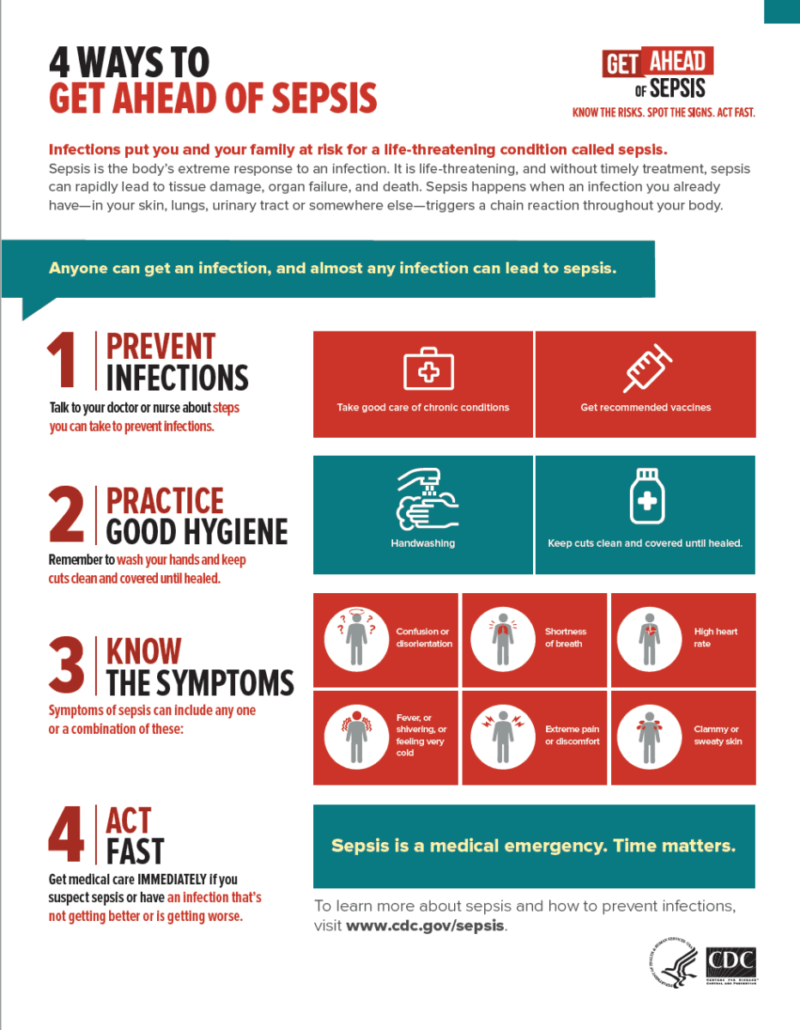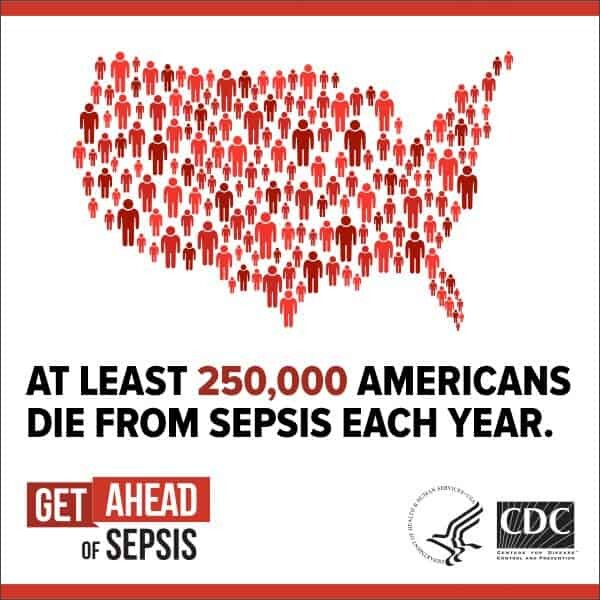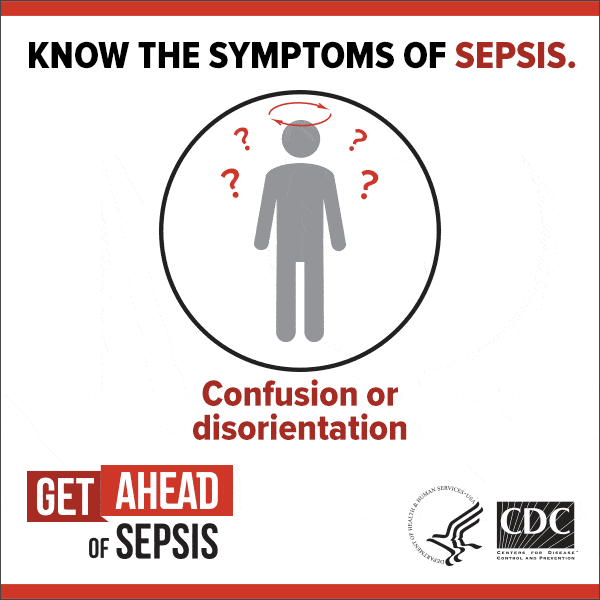This is a post prepared under a contract funded by the Centers for Disease Control and Prevention (CDC) and written on behalf of the Mom It Forward Influencer Network for use in CDC’s Get Ahead of Sepsis educational effort. Opinions on this blog are my own and do not necessarily reflect the views of CDC.
Are you familiar with sepsis? If not, I highly suggest you stop for a moment and learn more about sepsis. It could save your life.
So, what is sepsis? Sepsis is the body’s extreme response to an infection. Sepsis can happen when an infection you already have triggers a chain reaction throughout your body. The infection can be in your skin, urinary tract, lungs or elsewhere and it can be life-threatening. Without timely treatment, sepsis can rapidly cause organ failure, tissue damage, and even death.
Infections put you and your family at risk for a life-threatening condition called sepsis.
Anyone can get an infection, and almost any infection can lead to sepsis, but certain people are at higher risk, such as:
- Adults over 65
- Those with chronic medical conditions
- Children younger than one
- Those with weakened immune systems
The more you know about how to get ahead of sepsis, the better off you and your loved ones are.
 How You Can Get Ahead of Sepsis?
How You Can Get Ahead of Sepsis?
So, what are things you can do to help you and your loved ones get ahead of sepsis?
1. Prevent infections
Be sure and talk with your healthcare provider about different things you can do to help prevent infections. Things, like taking diligent care of chronic conditions and getting recommended vaccines, are some steps you can take.
2. Practice good hygiene.
Be sure to practice good hygiene – washing hands and keeping cuts cleaned and cover until healed.
3. Know the signs and symptoms of sepsis
It’s important to know the signs and symptoms of sepsis, which can include one or a combination of the following: confusion or disorientation, high heart rate, shortness of breath, extreme pain or discomfort, fever, or shivering, or feeling very cold, and clammy or sweaty skin.
4. Act fast
- Get immediate medical attention
It’s extremely important that you ACT FAST and get medical care immediately if you suspect sepsis or if you have an infection that isn’t getting better or if you notice it’s getting worse. Be sure to ask your doctor or nurse, “Could this infection be leading to sepsis?”
- Know where to get more information
Sepsis is a medical emergency. If you or your loved one suspects sepsis or has an infection that’s not getting better or is getting worse, ask your doctor or nurse, “Could this infection be leading to sepsis?”
Do your homework; it’s important to know where you can find more information about sepsis.
To learn more about sepsis and how to prevent infections, visit www.cdc.gov/sepsis.
For more information about antibiotic prescribing and use, visit https://www.cdc.gov/antibiotic-use



